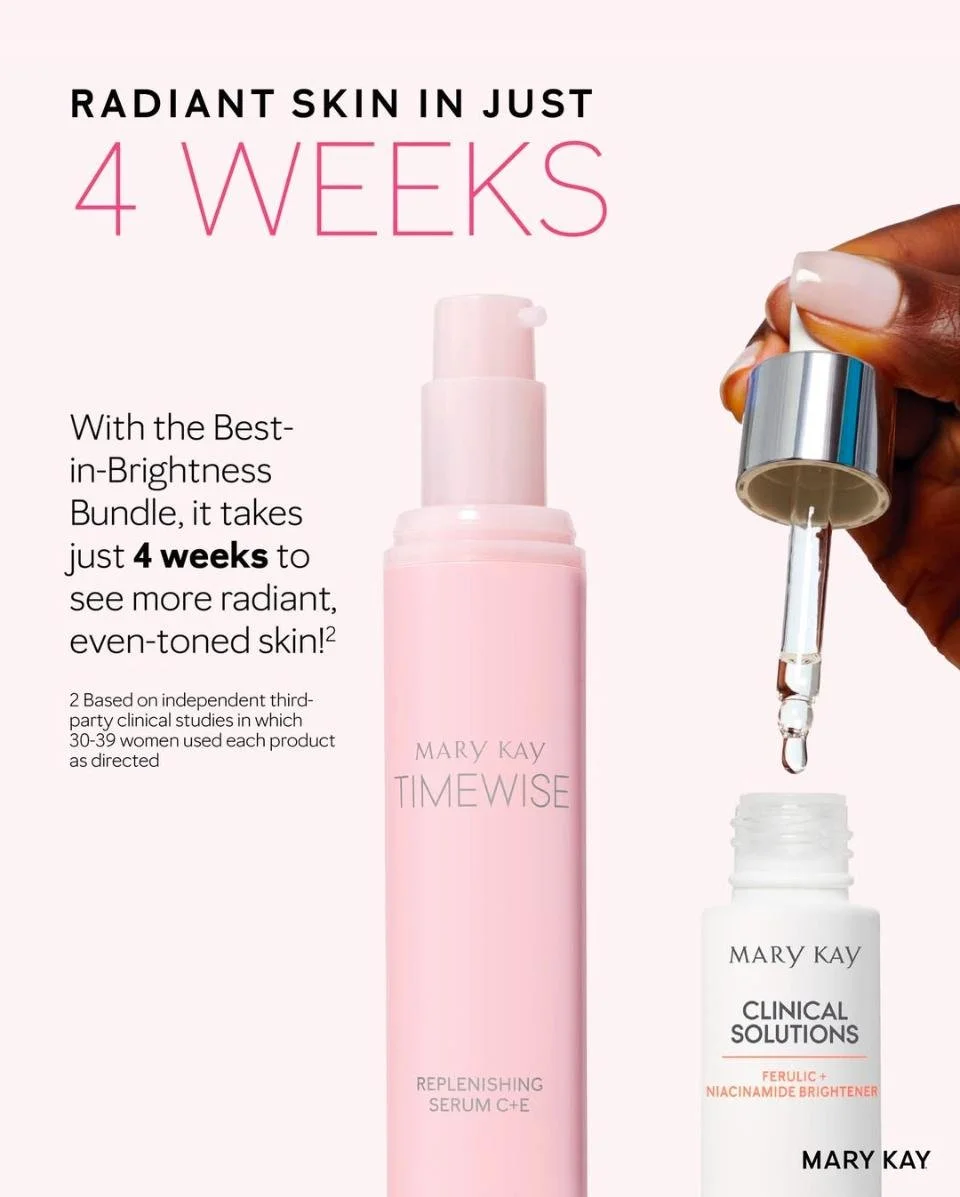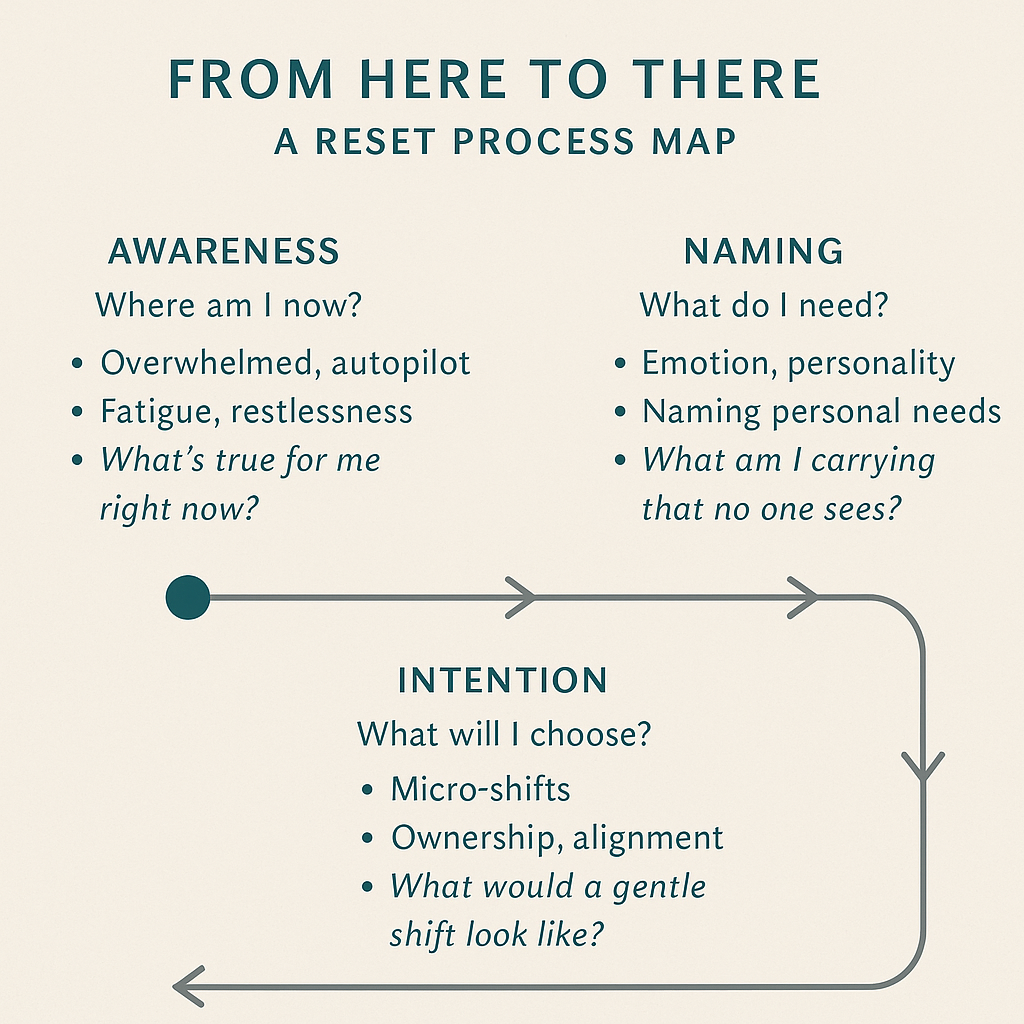Rhythm Over Routine: Flow for a Full Life
There are seasons where routine simply stops fitting the shape of life. Hormonal changes, emotional load, hidden pressures, and shifting responsibilities can make rigid structures feel heavy instead of helpful. This week’s reflection explores why embracing rhythm—rather than forcing routine—creates space for clarity, calm, and renewed confidence for both women and men navigating evolving seasons of life.
At some point in every life, the familiar structure of routine starts to lose its grip—not because a person lacks discipline or desire, but because life itself is shifting beneath the surface. Seasons change quietly, the body moves differently, thoughts gather differently, and responsibilities rearrange themselves without asking permission. What once fit seamlessly into a daily pattern begins to feel rigid, heavy, or strangely out of sync.
In moments like these, many find themselves faced with an unexpected realisation: the old ways of moving no longer match the new realities of the mind and body. Women often feel this sharply as hormonal transitions affect memory, focus, emotional thresholds, and energy patterns.
Men, too, experience internal changes that rarely receive language — whether it’s the quiet fatigue that lingers without explanation, the pressure to remain steady for everyone else, career strain, cooling motivation, physical transitions, or the loneliness that comes with being the one others rely upon.
Whether expressed or silent, these changes reshape how a person thinks, reacts, and moves through the day. And when this internal landscape evolves, the routines that once worked so well begin to feel demanding or strangely out of tune.
Routine, with its fixed expectations and repeated demands, can begin to feel unforgiving. It insists on sameness, even when the person living inside the routine is changing. Rhythm, however, tells a different story. It invites flexibility, honours shifts, allowing space for the complexity of being human — capable and courageous, yet tender and evolving.
Rhythm understands that some days begin with clarity and purpose, and others begin in a soft fog that is no one’s fault. Fog caused by stress, responsibility, emotional residue, or simply by a body and mind navigating transitions that are natural but seldom spoken about.
This fog does not belong to women alone. Men experience it too — often quietly, often with less room to confess it. Their pressure may come from the expectation to appear steady, from the weight of provision, from physical ageing, or from having no place to lay what they carry. Rhythm makes room for these realities as well. Not as limitations, but as information — cues that the pace of the day may need adjusting.
And when rhythm is embraced, something gentle begins to happen. The mind slowly gathers its focus again. Thoughts settle, perspective widens, and solutions that once felt tangled become clearer because there is finally room for them to unfold. Creativity rekindles as pressure eases. Confidence returns — not the loud kind driven by performance, but the grounded kind rooted in self-awareness and alignment. And this reconnection to clarity is universal.
Whether experienced by women navigating hormonal shifts or men moving through hidden pressures and unspoken expectations, rhythm restores what routine often erodes: a sense of being centred, capable, and fully present in one’s own life.
This is the quiet gift of rhythm I have found:
it supports life as it truly is, not as a checklist imagines it should be.
It allows a person to move with themselves rather than against themselves.
It welcomes fluctuation, honours capacity, and replaces self-judgment with understanding, and
It has a way of restoring what overwhelm tends to steal — clarity, calm, courage and connection to one’s internal wisdom.
This week offers a simple but meaningful reflection:
What might life feel like if the pace was set by rhythm, not routine — by who you are in this moment, rather than who you were yesterday?
Whether the answer comes quickly or slowly, whether it whispers or rises boldly, it holds power, because it invites a life that breathes with you — a life you don’t have to strain to keep up with.
If this resonates, share your season, your rhythm, or your thoughts. Your voice may be the gentle reminder someone else needs today.
USI
Life Flows Where the Mind Goes
Your mind is your first home — and just like any space, it deserves care.
Life Flows Where the Mind Goes opens our November series on Mindset Wellbeing, exploring how awareness, reflection, and gentle reframing can clear mental clutter and restore flow in everyday life.
We spent October creating environments that reflect who we are becoming — decluttering rooms, restoring rhythms, and making space for what truly matters.
But what happens when the clutter isn’t around us, but within us?
Our thoughts, like our homes, gather dust.
Unfinished worries, limiting beliefs, and silent self-talk can quietly crowd our mental space. And just like a messy room, a cluttered mind steals peace, creativity, and clarity.
Mindset Wellbeing is about tending to that inner environment.
It’s where awareness meets alignment — where you recognise the narratives shaping your choices and consciously choose which ones to keep.
My Approach to Mindset Wellbeing
My work in holistic wellbeing draws from years of helping people align their inner and outer worlds — through mindful space design, mindset reset, and intentional self-care.
While I’m not a clinical psychologist, my background in understanding children and young people’s mental health and counselling has shaped how I see and support emotional wellbeing.
What I share here isn’t therapy — it’s perspective.
A way of looking at life that connects the spiritual, emotional, and practical, helping us all pause long enough to ask the right questions and design routines that honour our truth.
This Month, We’ll Explore:
How the stories we tell ourselves influence our energy and focus
Simple mental decluttering practices to reset perspective
The power of affirmations, gratitude, and reframing as daily mental hygiene
Designing your “mental workspace” with the same care you give your home
You Could Start Here — A Simple Reset
Why not take a few minutes today to pause.
Write down three thoughts or beliefs that have been on repeat this week.
Now ask yourself — are they fueling your flow or fraying it?
If they’re draining, you don’t need to fight them — just reframe them.
Every shift in thought creates a shift in direction.
And where your mind flows, life follows.
Closing Reflection
Your mind is your first home.
Treat it with gentleness, honesty, and grace.
The rest of your world will follow its rhythm.
My work in holistic wellbeing comes from years of walking alongside people as they align their inner and outer worlds — through space design, mindset reset, and self-care practice.
While I’m not a clinical psychologist, my background in understanding children and young people’s mental health and counselling adds insight into how we can gently reframe thoughts and design routines that nurture peace and flow.
Think of this space as a guide for reflection, not prescription — an invitation to know yourself better, one mindful step at a time. - USI
Protect Your Yes: How Rituals of Care Create Healthy Boundaries
Some boundaries are spoken. Others are lived. This week’s reflection explores how skincare rituals and intentional spaces create healthy boundaries that protect peace, promote balance, and honour wellbeing. With insights for men and women — and a nod to World Mental Health and Breast Cancer Awareness — it’s a reminder that true self-care is sacred.
Some boundaries are spoken — a polite “no,” a quiet pause before you agree.
Others are lived.
They’re the small, steady choices we make each day that protect our energy, identity, and peace.
Skincare, though often treated as a vanity task, can be one of those boundaries.
A ritual of care that teaches your mind to stop, your body to breathe, and your spirit to remember that you matter too.
Every ritual needs room to breathe. Whether it’s a bathroom counter cleared of clutter, a quiet corner with your mirror and morning light, or a simple tray holding your essentials — space shapes ritual. It tells your mind, “this is where care begins.”
Why rituals of care matter
When we think about boundaries, we tend to think in terms of time and people.
But your body needs boundaries too — moments when it’s allowed to repair, replenish, and reset.
During National Work Life Week (6–10 Oct) and Back Care Awareness Week (7–12 Oct), we’re reminded that wellbeing doesn’t start in a calendar; it starts in how we care for ourselves within it.
Boundaries built through ritual — like a morning skincare routine or a mindful nighttime cleanse — help reinforce rhythm and balance.
These are not just aesthetic choices; they are physiological resets.
- When you wash your face slowly, your nervous system calms.
- When you moisturise, your touch signals safety to the body.
- When you breathe deeply between steps, your stress hormones ease.
What looks like a few minutes of skincare is, in fact, a few minutes of regulation.
Your skin as a mirror of balance
Your skin is your body’s largest organ — and its most honest storyteller.
It reflects hydration, sleep, stress, hormones, and environment.
As the seasons shift into autumn, the air cools and dries, pulling moisture from the surface of the skin.
If you’ve noticed tightness, flakiness, or dullness lately, that’s your skin asking for help — and attention.
For women in peri- or post-menopause, hormonal changes can also thin the skin and reduce elasticity, leading to dryness and sensitivity.
For men, daily shaving, environmental exposure, and stress can lead to irritation or uneven tone.
The answer for both isn’t more product — it’s the right rhythm of care.
I absolutely love this combo…
The mind-skin connection
Stress and skin are deeply connected — and that’s why World Mental Health Day (10 Oct) sits so naturally within this week’s rhythm.
Research continues to show that chronic stress increases inflammation and weakens the skin barrier.
In other words, your thoughts affect your face.
That’s also why routines like skincare work: they give the mind structure, something predictable and safe.
In an unpredictable world, that small act of consistency signals calm to your nervous system — it’s a physical meditation.
Beyond products — building relationships
We don’t sell skincare; we build relationships.
Because healthy skin, like healthy living, takes understanding, patience, and presence.
Every person’s skin has a story — shaped by genes, climate, stress, and habits.
Through consultation, we learn your story, your rhythm, and your needs, helping you find what truly supports your skin and spirit — whether that’s a simple cleanser, a nourishing night cream, or a ritual that helps you reconnect to yourself.
This month also marks Breast Cancer Awareness Month, reminding us that self-care is not superficial — it’s sacred. The same hands that tend to our face and skin can also perform life-affirming checks, nurturing the body that holds our spirit. Make room for this practice too. It’s one more way to protect your yes.
Create a Self-Care Corner
Your skincare routine deserves a space that supports your spirit. Try these small shifts to make your environment part of your ritual:
- Add light: Natural light in the morning or a warm lamp at night helps signal your body’s rhythm.
- Contain calm: Use a tray or basket to keep products organised — visual order creates mental ease.
- Engage the senses: A soft towel, a calming scent, or a small plant helps your space feel grounded and intentional.
It’s not just where you do your skincare — it’s where you return to yourself.
A gentle reminder
When you protect your yes — through time, through rest, through care — you’re not being selfish.
You’re preserving your peace so you can show up more fully.
So tonight, as you cleanse your face or massage your moisturiser, do it slowly.
Not to chase perfection, but to practice presence.
Not just for your skin, but for your soul.
✨ Because how you care for yourself becomes how you care for your world.
The Unrushed Reset
Week 1: From Here to There
A gentle guide to self-awareness and intention, making space for clarity, compassion and creative flow.
Introduction
We’re not all starting from the same place — and we’re certainly not wired the same way. That’s why one-size-fits-all wellness advice often falls flat.
Some of us are silently burning out behind our smiles. Others are juggling so many roles, we forget who we are when things go quiet. That’s why this week, we’re slowing things down and getting honest about where we are — without shame, without rush.
This week’s reset invites you to see yourself clearly and kindly. To reflect. To choose practices that suit you — your pace, your personality, your life load.
How are you anchored?
This isn’t about fixing. It’s about noticing. Where you are. What you need. And where you feel called to go.
🧭 Reset Pathways by Personality
We’ve painted four real-life-inspired portraits below — each one rooted in different ways of being, different rhythms of life. You might see yourself in one of them. Or in the spaces between.
1. Leah – The Quiet Processor (Introvert)
Leah thrives in solitude but struggles to make room for it. Meetings, notifications, and expectations crowd her schedule — until her thoughts feel tangled.
She’s learning to protect silence like a sabbath. One walk a day. No phone. Just breath and trees.
Leah’s Reset Practice
Mindset: “Quiet is not laziness. It’s clarity.”
Self-Care: Schedule silence — even 15 mins counts.
Emotion Tool: Stream-of-consciousness journaling (no edits).
Creative Spark: Gather textures (stone, fabric, wood) that bring calm and place them somewhere visible.
2. Dayo – The Expressive Connector (Extrovert)
Dayo draws energy from people — but lately, even the joy of connection feels exhausting. He’s always “on,” rarely pausing to check in with himself.
He’s trying something new: voice notes to himself. A check-in before checking on others.
Dayo’s Reset Practice
Mindset: “I can’t pour deeply if I never refill.”
Self-Care: One unplugged evening with a no-obligation friend.
Emotion Tool: Self-reflection voice notes.
Creative Spark: Write a short letter to your future self 30 days from now.
3. Malika – The Flexible Anchor (Ambivert)
Malika moves easily between people and peace — but as life demands pile up, she feels stretched thin. Always the helper. Rarely helped.
She’s learning to say yes to herself first. Even if it’s just one thing a day.
Malika’s Reset Practice
Mindset: “My needs are not an inconvenience.”
Self-Care: One daily “yes” to herself — big or small.
Emotion Tool: Traffic light check-ins (Red = depleted, Amber = unsure, Green = good).
Creative Spark: Create a “Do Less” list and celebrate sticking to it.
4. Tomi – The Brave Tending of a Single Primary Parent Over 45
Tomi’s day starts before the alarm. Shoes to find, cereal to pour, school bags to check — all while juggling work emails. By 8:30 a.m., they’ve made 15 decisions and barely taken a breath.
Lately, Tomi’s begun using post-it notes as small anchors.
On the fridge: I feel scattered. I need five minutes outside.
By the kettle: I feel worn. I need something warm.
One morning, Tomi’s daughter adds her own: I feel fine. I need a snack. They laugh. It becomes a family rhythm.
Little visual reminders that everyone — including caregivers — has needs.
Tomi’s Reset Practice
Mindset: “What would it look like to offer myself the same grace I give others?”
Self-Care: Mirror moments — speak one kind truth to yourself daily.
Emotion Tool: “Name + Need” post-it check-ins.
Creative Spark: Create a family or solo drawing/list of a peaceful day — and bring one part of it to life this week.
Closing Reflection
These aren’t prescriptions — they’re invitations.
You may find yourself in Leah, Dayo, Malika, or Tomi — or somewhere entirely your own.
This week, choose to pause — just enough to ask:
What’s true for me right now?
What am I carrying that no one sees?
What would a gentle shift look like?
Reset isn’t about becoming someone new.
It’s about returning — to your truth, your needs, and your next best rhythm.
Until next week, be kind to yourself.
USI













